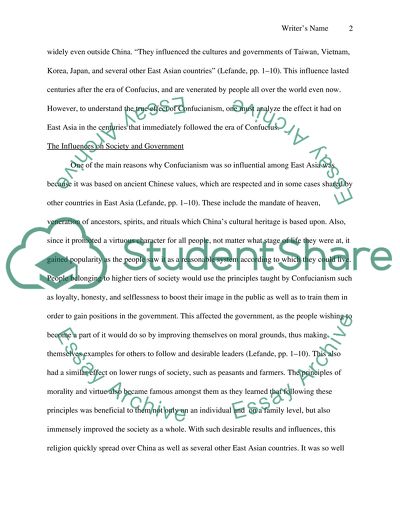Cite this document
(“Influnce of Confucianism on Ancient China Society Essay”, n.d.)
Retrieved from https://studentshare.org/history/1424365-influnce-of-confucianism-on-ancient-china-society
Retrieved from https://studentshare.org/history/1424365-influnce-of-confucianism-on-ancient-china-society
(Influnce of Confucianism on Ancient China Society Essay)
https://studentshare.org/history/1424365-influnce-of-confucianism-on-ancient-china-society.
https://studentshare.org/history/1424365-influnce-of-confucianism-on-ancient-china-society.
“Influnce of Confucianism on Ancient China Society Essay”, n.d. https://studentshare.org/history/1424365-influnce-of-confucianism-on-ancient-china-society.


